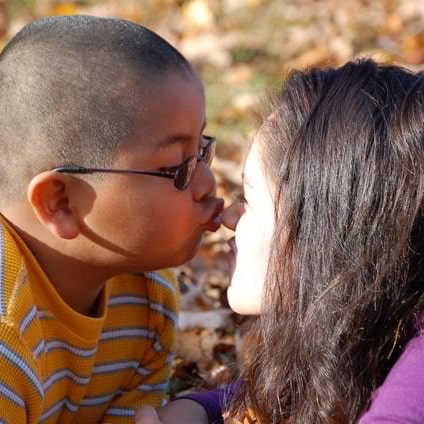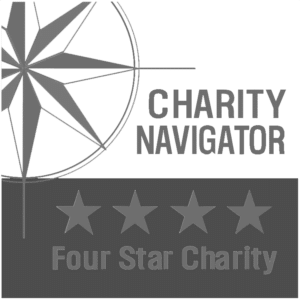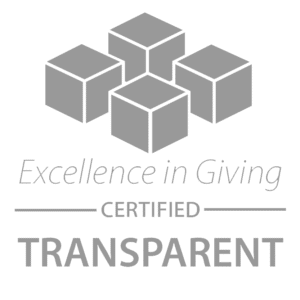You’re listening to Together by AGCI. I’m Melissa Rush.
Last episode we spoke with Sam Moore, AGCI’s Director of Adoption, about the ethics of adoption. If you haven’t listened to that episode, definitely go back and check it out. Today we’re back with Sam. This time we’re talking about another important issue: Why is adoption so expensive? Let’s not waste any time. Let’s get into our conversation.
Well, thank you, Sam, for talking to us about, you know, this kind of topic that can feel really overwhelming to families, especially when they’re first starting their journey, the cost of adoption. Why is adoption so expensive? That’s those are questions we hear a lot. So can you start by kind of talking about, you know, the cost of international versus domestic? Is there much of a difference there? You know why that is or why not? Just kind of give us an overview? Yeah, I think the cost for adoption, like you said, Melissa, we have found that some of the first questions they ask, you know, oh, how much is this going to cost?
And certainly the initial fee schedule that they see, and they can see that on our website, they can see that when they talk to our inquiry team, you know, just around what this might look like, or they can even Google like average costs of adoptions and they might feel overwhelmed by just seeing the numbers, but what those fees are really going to and why I think it’s great to be able to speak with someone at an adoption agency or an attorney that you’re working with for a domestic adoption. You know, why, why are these fees? What are these fees going towards? Right. And so a lot of those fees we’ll cover things like attorney fees. So for example, in a domestic adoption, if you’re working with an agency or you’re working with a private attorney for a domestic adoption, a lot of those fees are going to be fees for the attorney, facilitating your adoption in the same way in an inter-country adoption, you’ll have an attorney in country that’s going to help support and represent you in your adoption in that country. And so same thing you’ll have attorney fees. So a lot of them are very similar. Some of the fees that are differ, maybe in an international adoption, our translation fees, right? A lot of documentation has to be translated.
If you are receiving a referral from Columbia, for example, we would be receiving the referral in Spanish as well as in English, so that you could review depending on, you know, your family’s comfort level with Spanish, regardless when we turn in documentation to us immigration, and it has to be fully translated. So you have to have it in the child’s birth countries, original language that the document is issued in as well as an English. Well, Gary and that’s, it’s a more uncommon one. A lot of families don’t speak Bulgarian. We have had a few, which is always very impressive, but we do have to have those in English. So again, translation costs, there are fees that you do pay to us, immigration for oversight over the case and the issuance of approval for that child to be issued a visa. There are visa fees for the child to be issued a visa. So there’s just a number of fees that I think once you learn about the reasoning behind each of the fees, it all makes sense. The other thing about fees for inter-country adoption and domestic adoption is that they are fairly regulated in particular for inter-country adoption. You know, our, every agency that works in inter-country adoption or an attorney that does inter-country adoption support for families, they have to report the fees that they’re charging and what the fees are exactly for anytime.
There’s a fee change as well as when they start new programs. And so that’s, that’s important to know that those fees are not necessarily changing all the time, if they are, if there is a change that has to go through this full process of getting that change approved before that change can be implemented or applied to, to any new families and the programs. So, and another factor, I guess, with international adoption would be, you know, travel like, right? Yeah, yeah. Flying somewhere and potentially for like several weeks, right? Like what, what are the differences between our programs? Like what’s the longest stay? Yeah. There’s, there’s definitely some differences. And a lot of that right now, of course, we’re still navigating, you know, global pandemic quarantine, longer times in country for some country programs. I would say, you know, our programs do vary anywhere from three and a half to four weeks, all the way to, you know, 14, 15, 16 weeks in country, there’s certainly are potentials for all of that. And especially with the pandemic there’s, there’s potential that families can end up staying in country much longer. Should there be, you know, a false positive, or some reason that they have to stay in Florentine. Some countries are also requiring quarantine when you arrive. So there’s longer time that you’re there lead time before the process of adoption can continue when they’re in country. So certainly it’s important to factor in travel costs.
We do have somewhat of an estimate on every fee schedule of how much, you know, for example, if you live in Houston and you’re adopting from Columbia, might be a little bit cheaper to fly than if you live in Seattle up in the PNW, and then you’re traveling all the way to South Africa. So there’s certainly differences there, but we do give estimates, but in the same way, there are estimated travel costs for domestic adoption too. If a family is adopting and they’ve found connection with a birth mother or birth parents who live in a different state, there is a possibility that they may need to travel to be there with birth family when birth happens or to take physical custody of the child. And that’s all monitored as well, those fees and those estimates are all monitored through the states and their connections. So, yeah, that’s a good point. So I think sometimes when families are, you know, first starting the process and they’re just kind of hungry for all of the information and kind of the first question is, well, can we, you know, like afford this and, and sometimes, you know, you get an spending too much time on Google is usually never like that good of a thing to do, like regardless of what you’re looking at, but you know, sometimes you see, okay, well how much does it cost to adopt from, you know, Columbia and the number that pops up?
It’s like, oh my gosh, like that’s a lot of money that can feel really overwhelming, but I think something that’s important for people to understand is it’s not like you’re writing this one check all at once. Can you kind of talk about how that’s, you know, the fees are structured and how it’s kind of broken up over time? Yeah, definitely. We AGCI. And, and, and, you know, agencies or organizations that are helping families to adopt, we never want finances to be a barrier, but we know that in order to properly monitor and oversee inter-country adoptions in a way that is ensuring that this adoption is in the best interest of that child and that all, you know, all the procedures and standards are being followed. There are costs to that, but we certainly do structure out the fees in a way that that can be manageable. And we’re happy to sit and kind of walk through that with new families that are, that are thinking about adoption going through, you know, the different sections of when the fees will be due. They start, they are they’re, they’re parsed out over time, over the course of an adoption process. It’s definitely not sit down and write a check for that full amount. And we actually do it based on when certain milestones of the adoption are achieved, so that then, you know, those fees are going towards that milestone.
And so there are five or six, depending on which country you’re, you’re adopting from, you know, different milestones in the process where, you know, again, you’re, you know, about all those fees up front, you know, the bottom line of what it could be. And it’s all estimated based on, again, the country you’re adopting from, if you adopt one child versus two or three or four, depending on how many kiddos you’re, you’re growing your family by, and also depends on, on how quickly you move forward with the placement of a child. For example, if you learn about a waiting child and your heart feels called to, to adopt a waiting child who, you know, from, from the country that you’re hoping to adopt from that process might be shorter than if you were to wait for traditional referral. And both of those have their own unique joys and challenges for each of those processes, but that could mean that fees are due at different times. All of that, to kind of say that we try really hard to make sure that fees are parsed out over time, and that there are opportunities for support at each of those at each of those milestones. So really connecting with various grant organizations that really support adoptive family pre-adoptive families and ended up to families that have brought children that have grown their family through adoption.
You know, they have grants that are available for families that are adopting an older child. They have grants that are very specific to, to the family’s heart. And so what the family is trying to do as well as, you know, grants that are available to families that are adopting a child with a significant identified medical need, we, as we know, families that adoption is it can be expensive. Sure. And also adopting a child that has an identified need is going to be, you know, an ongoing expense. And so how to navigate that, we also have grants through AGCI. We, we love to provide grants for families that apply for those. We have different organizations that encourage and provide support when families are trying to fundraise. So we have a number of those resources, you know, on our website or, you know, your case managers are always happy to speak with families about that. Because again, at the end of the day, if a family has a heart to adopt, we want to try to help them navigate that. And we have incredibly generous whether they’re adopted families from the past, or they just have gotten to know AGCI incredibly generous donors who have specifically said, we want these funds to go towards helping a family adopt, and they don’t ever want finances to be a barrier either.
So we’ve, we’ve been able to see that be an incredible resource for families and see families be able to, you know, navigate adoption and not feel stressed by that because ultimately the focus should be those kiddos that are in your arms, not, not worrying about, about how, you know, those finances are going to come together. And so many of our families have shared testimony of God’s provision over that. You know, how God just always somehow provides whether that was a surprise, you know, checking the mail from, from a good friend who, who felt they were, that family was on their heart. And they just really wanted to, to share those funds with them so that they could kind of continue on in their process or some of these really amazing stories of, of, of donors and, and their hearts for, for, for giving to this process and giving to adoptive families, and then being able to see and share with these donors, you know, photos and videos of the kids with their families. It’s just, it’s truly amazing to see how generous hearts can kind of come together to help build family. Super, super cool. That’s so true. And I mean, we talk about this all the time, and obviously we can’t like put this on a website as a fundraising strategy, but it does happen so often. I mean, I cannot tell you how many families.
I, and I feel like everybody at AGCI has these stories like of the exact amount that they needed at the exact timeline that they needed, like showing up from a stranger, like in their mailbox, just crazy, crazy, amazing stories of provision. And yeah, it it’s really, I mean, I know it can feel super overwhelming when you see those numbers and you’re like, how can we make this work? But if this is really what you feel called to be doing, if this is, you know, God’s plan for your family, like if you have that trust in that faith, it will work out. It really well. You might not know how yet, but it will. Yeah. He definitely knows the way. And I think it’s been, it’s been super cool. Like you said, to talk to families, who’ve shared stories like that. And really, you know, families will say, oh, you know, I, I’m a little hesitant to fundraise. Maybe it’s their first adoption or they haven’t done this before. Maybe they haven’t engaged as much in their community about adoption. And you know, oh, I’m kind of hesitant to fundraise. I’m hesitant to, to ask for money, right. To kind of quote unquote.
But I think that what I’ve heard from families on the other side of that, who have taken that, that leap of faith to share their adoption journey, to share what they feel called towards with their family growth, that it has blessed them certainly to be able to receive. Right. It’s a huge blessing that, that people were generous and were able to give. But what I’ve heard from the other side of that too, is that the donors and people who have participated in fundraisers and making masks with south African flags on them, or like whatever it is that you’re selling to help raise money for the adoption, or, you know, running a 5k around your neighborhood or whatever it is, COVID, COVID got some really creative fundraising. It was so fun to see distance running. You know, everybody stayed apart. But to hear from the, from those who participated in that was that they felt equally blessed and they felt blessed by being invited into the story of adoption. And, and some of them even ended up wanting to adopt themselves one day. And so those types of stories always just really moved me because you get to see that, that sharing those stories and like bearing witness to God’s work through these families and encouraging them towards adoption. Like being able to share that as an adoptive family or pre-adoptive family with others is a huge blessing for them too.
So I would just encourage families not to feel afraid to do that, or take that leap of faith to do that because it is such a, a huge way that families end up actually funding their adoptions is through their communities. Absolutely. And people want, people want to help people want to be involved. Like people want to be part of your story. And I think sometimes people don’t know how to help. And if you have like a direct thing, like, Hey, we’re doing this big thing as a family and we need your help. Like what a wonderful invitation to be involved. And people, you know, everyone has different journeys and finances and all of those things. And so it’s not about, doesn’t have to be huge gifts like or anything like that, just like what is possible for you and feels doable for you and even just praying about it or sharing with other people, like all of that helps. So yeah. I, I totally agree. I mean, it is so encouraging to see, you know, communities get behind, get behind families and feel like they’re part of the journey. Cause they are absolutely, it takes a village. It takes the whole community. For sure. I mean, you think about like when someone has, you know, is pregnant and gives birth and, and like how people, you know, have baby showers and bring meals and do all those things.
Like we need all of that for adoption to, you know, absolutely. That’s a big part of, of, of how, when families are growing their families through adoption, like having your community rally around you and having your, whether that’s your church, your neighborhood, your family, if you live close to them, God willing, you know, all of those moments of having people show up and, and knowing that, that when, as you’re making an attempt as a pre-adoptive family, just show up for a child and eventually when your child is home with you showing up for them day to day, you know, it can be a lot and you do need that support. You do need those family members, those friends, those church communities to continue to show up for you. And like you said, Melissa, it doesn’t have to be in a financial capacity either. Although that’s the topic for today, you know, it can be in any capacity, whether that’s a meal train or bringing over books that they read to their kiddos when they were little to kind of help you fill that library, or like just little things to know that there are blessings everywhere you look from, from people that are in your community. So, yeah, absolutely.
So I feel like we’ve kind of touched on this to a certain degree and that it is accessible for everyone, but something that we regardless still hear a lot is that like, you know, adoption is something that only wealthy families can do and you know, I, that’s not true, but can you speak a little bit more to that and kind of just all the different types of families that you’ve kind of seen be able to do this? Yeah, I definitely think it’s, it’s not true, everyone, you know, it’s, it’s accessible to, to many, there is, you know, certainly a level from a, from a us immigration standpoint, from a legal perspective, there is a certain level of income that is required for you to be again, like some mumbo-jumbo here, but like the, the sponsor for this child to immigrate to the United States, there is a, a threshold it’s, it’s the, you know, level that does need to be met, but it is very reasonable for, for many families to be able to meet that that are interested in adoption, that feel that they have, you know, what’s, what’s more important of course, to us when we’re working with families is, you know, the preparedness, the training, the love love is important, but as we’ve discussed many times, like love, you know, is, is not going to be enough.
There will be to be more, you know, love is so important and you will love that child so much, but there’s also all of the preparedness and training that needs to go into preparing to parent a child who has experienced Tufts starts. And those, those are the, those are the qualities we’re looking for. Not necessarily, you know, families who have this high level of income adoption can be accessible to families from really most backgrounds and most, you know, financial backgrounds. And like we’ve been speaking about, there are many ways to, to meet those financial milestones that are due for the fees. You know, there’s fundraising, there’s grants, many families that have different jobs, different jobs, different workplace environments we’ll offer matching for adoption or will offer some sort of grant that comes from that work environment that will employer. I can’t think of the word. You know, those employers, a lot of employers will have some sort of adoption subsidy or grant that’s given. There’s also adoption tax credits and various things that kind of change over the years. But if you want to adopt in your hardest there, if you feel that God is calling you to this again, he will provide, and he will provide different windows and doors that will open and say, this is how you’re going to meet this one. This is how you’re going to meet this school.
And really, I think that, that if that calling is on your heart and, and, and God is finding ways to keep providing for those steps towards an adoption, you know, any family that feels that, that, that is their calling to, to build their family through adoption can navigate it. And we would want to help families navigate it. We won’t say it won’t be, won’t be difficult. There might be challenges. There might be times where, you know, again, like you shared before, we’re not sure how we’re gonna, how we’re gonna meet this next one or how we’re going to get there. But again, we never want finances to be, you know, the reason a family says no to adoption, we want them to say yes to adoption and then ask, okay, God, how are we going to do this? And then we figure it out from there. Yeah, yeah, absolutely. So I feel, I mean, we’ve touched on, you know, fundraising grants all are like, are there any other ways that you’ve seen maybe unexpected that you’ve seen families make adoption financially feasible for their family? Yeah, I think, you know, it also, it all depends on what’s best for each individual family because ultimately what’s going to be best for a child. That’s placed into a family through adoption is going to be that that family has the resources that they need to navigate what that looks like.
And so, you know, parenting and an additional child, or maybe it’s their first child, but we need the families to feel that they’re in a place to provide not only a safe and loving home, but that, you know, if the child does have identified medical need, for example, or a developmental need, that there is the ability to provide resources to meet those needs. And so we work with families when they are matched with a child to really create a very long document that if any of the Optiv families are listening now they’ll know about, but there’s a big it’s, you know, a plan, a plan that we’re putting together to kind of say, how are we going to meet the rest of these goals and how are we going to prepare for this specific child, which is so critical, but to back up to go kind of more for like, for beginning families, families that are really just starting this process and thinking, how can we make this financially feasible? I think that, you know, families that come to us and say, okay, you know, we’re considering adoption that moment that they say we’re considering adoption. Isn’t the first time that those words are, are really coming out of their mouth, right? God has been working on their hearts over the years or months leading up to that call, which is a brave call to say, okay, now let’s learn more about it.
And I think that from the moment that you start considering adoption as an option for your family, it’s great to make calls, to understand what the fees will look like to understand, and then plan, you know, work together. There are a number of coaching organizations out there that help coach around raising money for adoption. Or there are, you know, just financial advisors in general, that if you say this is a really big priority for my family, you know, as we’re planning out the next two or three years of our life together and growing our family, this is a priority. So how can we make this happen? And then being intentional, you know, when my family, I come from an adoptive family, my youngest brother was adopted from Guatemala. And when my family was in the process of planning for growing our family through adoption, you know, it was okay. So there are things that maybe we need to maybe make some cuts, you know, some cutbacks, maybe we don’t go on a certain vacation, or maybe we make a different decision about how many nights a week we order in or go out to eat together as a family. And we make intentional choices together as a family.
And you get the other kiddos involved with those other kids, or you get your community involved in making intentional choices to really save and to, to have those funds be kind of put aside for adoption and you kind of make it fun, right? Like when we were kids, we didn’t think about it as, oh, we’re losing out on an experience. We thought about it as we’re saving up for the experience of being able to have our brother join our family. So I always joke around with him now that, you know, we, we used to do, you know, we didn’t go on a trip like for the couple of years leading up to when you came home and you know, all these things. And we’re like, oh, it’s so worth it because we got to be a part of, you know, our family, you know, kind of saving and really making sure that we have those financial reserves. So, you know, creative ways to just get your family in that space. And that Headspace of like, this is, this is an incredible thing that God is calling us to do. And sometimes that means making some sacrifices to be able to get to that point. And again, like we’ve been talking about this whole time, like, let your community be involved. Like, let them be a part of this story with you, because that is huge.
And, and those gifts small or large we’ll will certainly carry over that finish line because God will find a way he’ll find a way to bring someone into your life. That’s going to, you know, bless you or many someones. It’s usually many someones. Yeah, absolutely. Well, thank you so much, Sam. I feel so encouraged by this. I think this could be kind of a heavy topic at times of like, oh my gosh, like, nobody wants to talk about the financial side of things, but it’s like, it is, you know, I think it’s just kind of flipping the script. Like, it’s not like it’s, it’s an opportunity. It’s an opportunity to engage on a deeper level with your community to have different kinds of conversations, to reach out to people in new ways to, you know, I get other people involved and that’s like a beautiful thing ultimately, to have this like whole village waiting for when your child comes home. Yeah, absolutely. Thank you so much for talking about this with me. Thank you. That was Samantha Moore AGCI is director of adoption.
Thanks for listening to Together by AGCI. As always, if you liked what you heard, please rate or review us wherever you listen to podcasts. If you’d like to read or watch even more stories, check out our website, allgodschildren.org, reach out to us and let us know what you think on Instagram at @allgodschildreninternational or email us at together@allgodschildren.org. We look forward to sharing another story of hope the next time we’re together. We’ll talk to you soon.










